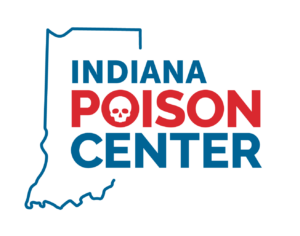Accidental and intentional poisonings are one of the most common causes of injury to adults. Medicines, household products, personal care products, and garden and automotive products have been known to contribute to poisonings in adults and seniors.
Poisoning Risk Factors for Adults and Seniors
Ignoring Product Labels
Adults often fail to carefully read product labels and directions for safe use of medications and household products. This may be from a lack of time or a perceived familiarity with a product. Regardless of the situation, poison centers can help determine what amount of exposure is safe and what needs medical attention.
Drug Interactions
It is important to realize that over-the-counter medicines, vitamins, herbal products, and prescription medicines can interact with each other and/or with other things we eat and drink. Before taking any medicine, vitamin,or dietary supplement, check with your pharmacist or physician to make sure there are no precautions you need to be aware of.
Workplace Exposures
Adults and seniors may be exposed to chemicals and substances in the workplace. It is important to know as much about the products you use at work as the products you use at home.
Substance Use
Many people associate substance use with teens. However, recent data has shown that the drug poisoning death rate is highest in adults, ages 45-54 years.
Suicide
Suicide is a leading cause of death in all adult age groups. For women, poisoning is the leading method of suicide.
Seniors are most likely to be hospitalized for unintentional poisoning. The majority of those poisonings occur because of medications (over-the-counter and prescription) and/or unsafe combinations of medication. Some additional risk factors for seniors include:
Complex Medicine Regimens
Some seniors take multiple medicines at various times during the day. Keeping track of when medicines are taken is vital for preventing unintentional medicine overdoses. Daily pill reminders or medicine charts are helpful to keep track of complex medicine schedules.
Therapeutic Errors
Missing a dose of medicine can be just as significant as taking a double dose. If you can’t remember if you have taken a dose of medicine, don’t guess. Call your pharmacist or physician to figure out a safe course of action.
Insufficient Medical Monitoring
With some medicines, it is necessary to perform routine blood work to make sure the proper amount of medicine is being taken. Often these blood tests are skipped or not ordered, putting the patient at risk.
Diminished Eyesight
Before taking any medication, put on your glasses and turn on the light. Consider a magnifier, or have someone read it to you if you are still unable to clearly read each word, especially for small print.
Prevention
- Always read the label before using products and taking medicines.
- Take medicines only as prescribed by your doctor or as directed on the over-the-counter medicine label.
- Get blood work done when your doctor orders it.
- Never share your medicine with a friend or family member, and never take a medicine from a friend or family member.
- Keep products in their original containers to avoid confusion.
- Keep an updated list of all of the medications being taken – prescription, over-the-counter, vitamins, and herbals. Make sure you know the names, strengths, and uses of your medicines.
- Try to fill your prescriptions at the same pharmacy so your medicine profile can be regularly reviewed for drug interactions and duplications.
- Use medicine reminders, such as daily pill boxes or medicine charts.
- Tell your physician and pharmacist what medicines you are taking at each visit. Even herbal supplements can interact.
- Throw away old and expired medicines. Do not save medicines for future use. Ask a pharmacist how to properly dispose of unused or expired medication.
- Develop a system for medicine tracking that shows when you took it, such as a check-off list or medicine journal.
- Do NOT wait for symptoms to develop. Call the IPC at 1.800.222.1222 immediately if you have questions or think you made a mistake with your medicine.
